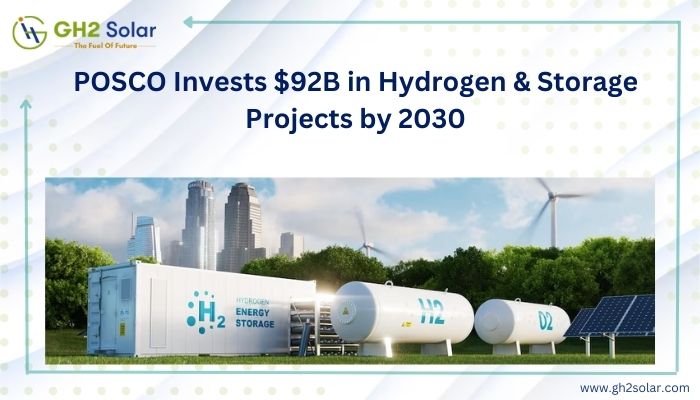The POSCO Group, a South Korean steel manufacturer, declared its aim to invest 121 trillion won ($93 billion in Hydrogen & Storage Projects) by 2030 in the environmental development of its core businesses, which include the steel industry, the manufacture of battery materials, and hydrogen projects. According to KED, the group’s leader, Choi Jeong, said this.
More than 60% of the budget, or 73 trillion won ($56 billion), will go toward domestic businesses, mostly in the form of production hubs in the provinces of Pohang, North Gyeongsang, and Gwangyang, South Jeolla. As a result, the corporation intends to add 330,000 new positions. The remaining cash will be used for international projects.
“The first blast furnace in Pohang was a turning point for the South Korean economy, and has ensured economic growth for the past 50 years. So, we will continue to develop products focused on core businesses, including steel production, battery materials, and hydrogen, to become a leader in the production of environmentally friendly products”, Choi Jeong noted.
Additionally, POSCO intends to install hydrogen-based, or HyREX, manufacturing lines in place of blast furnaces at its fossil-fueled operations by the year 2050. A 5 million ton increase in yearly middle group hydrogen demand is anticipated as a result of the switch to ecologically friendly materials.
The business expects to produce 7 million tons of hydrogen annually by 2050, ranking it among the world’s top producers after accounting for domestic demand.
As previously reported by GMK Center, POSCO plans to cut carbon emissions by 10% by 2030. To achieve this, the business is spending $14 billion to build two electric arc furnaces at plants in Kwangyang and Pohang, which are expected to be operational in 2025 and 2027, respectively.
By integrating hydrogen and renewable energy sources in production, the company intends to transition to carbon-free steel manufacture by 2050.
Source: GMK Center
For More Updates, Follow GH2 Solar on LinkedIn








